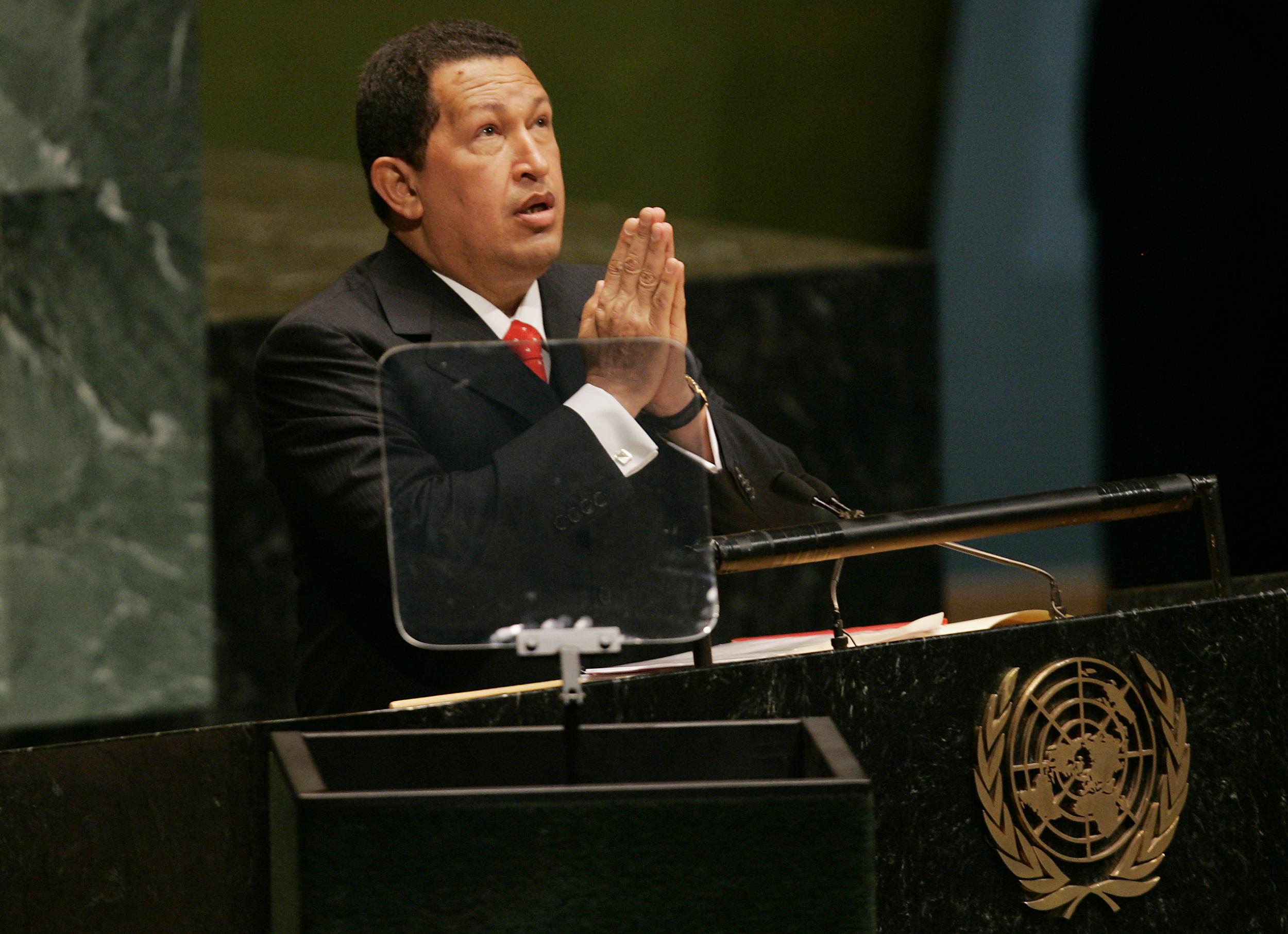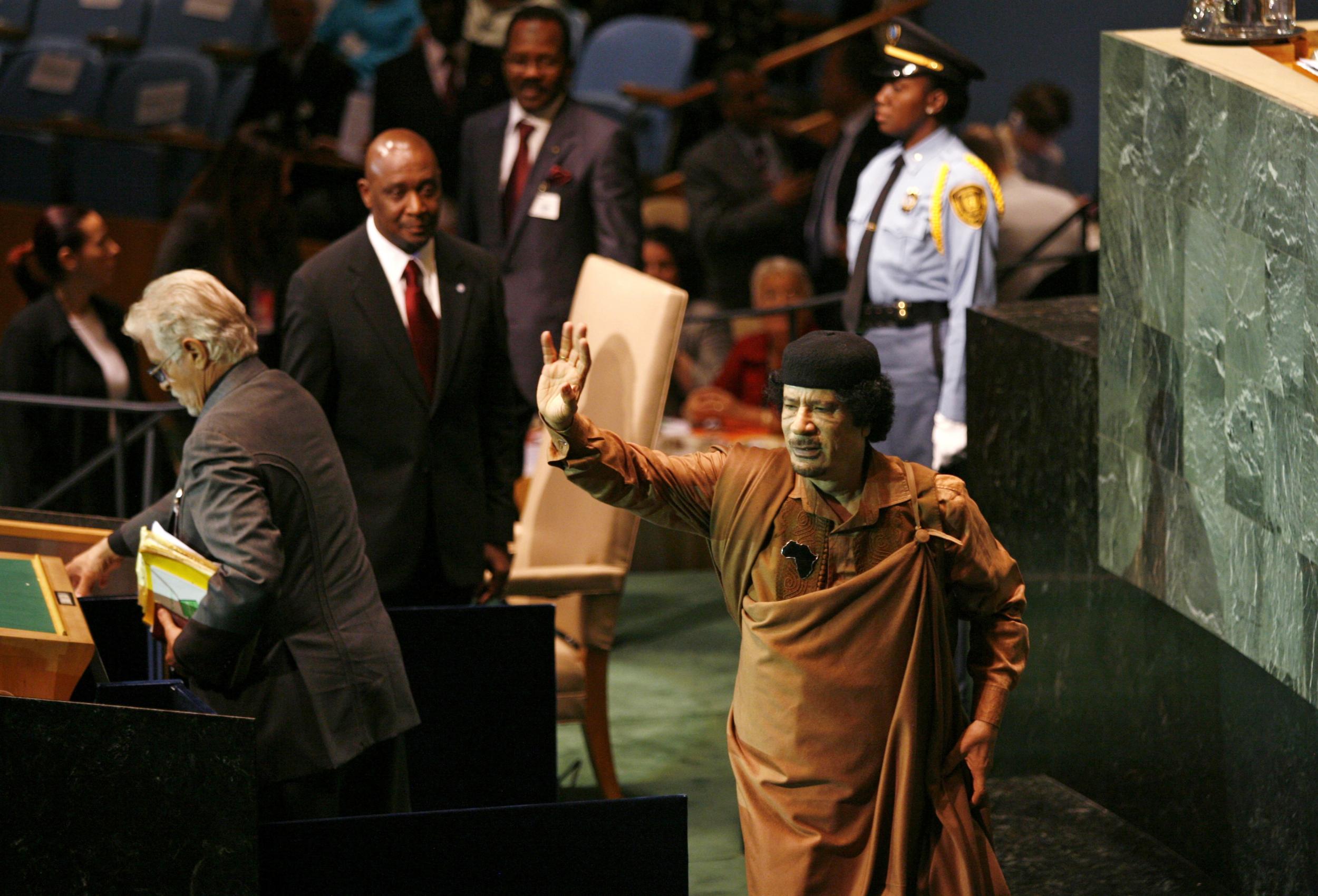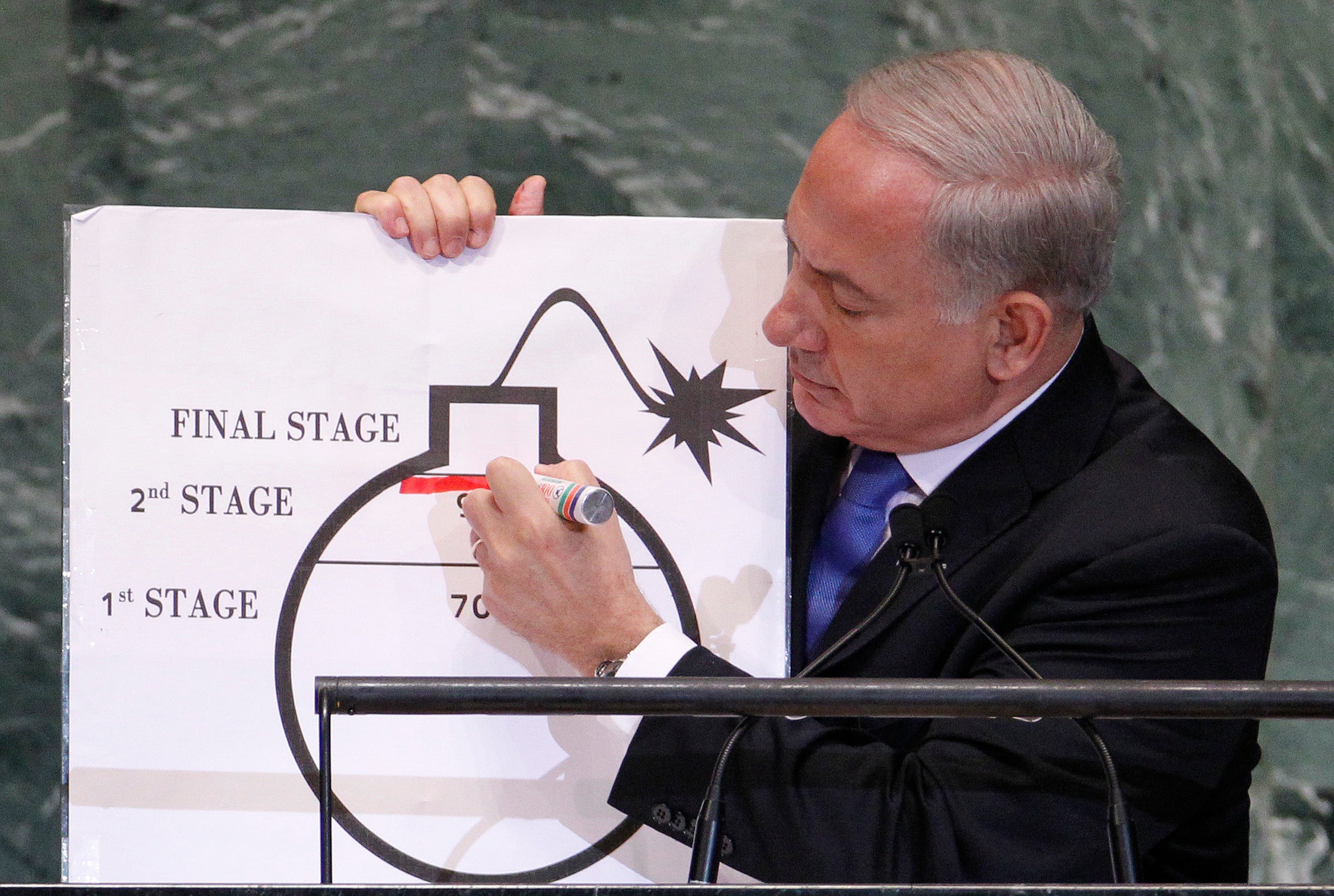Angry, surprising and downright bizarre: Strange scenes at the United Nations
From furious shoe-banging to cartoon bombs, the gathering of world leaders has seen moments of high drama over the years, writes Negar Mortazavi


Your support helps us to tell the story
From reproductive rights to climate change to Big Tech, The Independent is on the ground when the story is developing. Whether it's investigating the financials of Elon Musk's pro-Trump PAC or producing our latest documentary, 'The A Word', which shines a light on the American women fighting for reproductive rights, we know how important it is to parse out the facts from the messaging.
At such a critical moment in US history, we need reporters on the ground. Your donation allows us to keep sending journalists to speak to both sides of the story.
The Independent is trusted by Americans across the entire political spectrum. And unlike many other quality news outlets, we choose not to lock Americans out of our reporting and analysis with paywalls. We believe quality journalism should be available to everyone, paid for by those who can afford it.
Your support makes all the difference.The annual general assembly of the United Nations starts this week in New York, with leaders from nearly 200 countries gathering for the world’s largest diplomatic event.
As thousands of delegates descend upon a tiny piece of land in eastern Manhattan, there will be no shortage of high-wire diplomacy and tense brinkmanship.
This year’s summit begins amid worldwide protests over climate change, increasing tensions between the US and Iran in the Persian Gulf, Brexit in the UK, renewed antagonism between India and Pakistan in Kashmir, unrest in Hong Kong, and the collapse of peace talks in Afghanistan.
The UN will once again be a forum for struggles over borders, national identities and the search for collective solutions to the world’s most pressing problems.
But events will have to take quite a turn to rival some of the most angry, surprising and downright bizarre episodes witnessed at the international body since its founding in 1945 in the wake of the Second World War.
One of the strangest happened in 1960, when the leader of the Soviet Union, Nikita Khrushchev, took exception to remarks made by a delegate from the Philippines about Soviet policies in eastern Europe.
The belligerent communist – not a man used to being criticised in public – responded by banging the table with his fists. When that didn’t silence the Philippines delegate, he went a step further, taking off one of his shoes and banging that on the table instead.
The famous incident has generated several possible explanations over the years, including that he had removed his shoe because it was too tight, and that it had come off after being stepped on by a journalist. Khrushchev himself was said to be delighted by the angry reaction to the incident.

One of the few world leaders to come close to matching Khrushchev’s epic level of scorn for a rival was the Venezuelan president Hugo Chavez, in 2006.
An avowed opponent of the United States, the socialist leader compared then US president George W Bush to no less a figure than Satan. Speaking from the podium the day after Bush’s address, Chavez told the assembly: “The devil came here yesterday.”
Crossing himself theatrically, briefly clasping his hands as if in prayer, and glancing heavenwards, he added: “Right here! And it smells of sulphur still today. Yesterday, ladies and gentlemen, from this rostrum, the president of the United States, the gentleman I refer to as the devil came here, talking as if he owned the world.”
His rhetoric provoked nervous laughter among some of the delegates.
There was more open laughter at the general assembly last year but this time it was the speaker who was left feeling uncomfortable – Donald Trump.
Addressing the general assembly for the second time since his election, Mr Trump clicked into rally mode by boasting about his achievements, only to find a far less sympathetic audience among his fellow world leaders.
As he claimed that he had already accomplished more than “almost any administration” in US history, laughter was heard around the chamber. Realising what was happening, the president seemed to be momentarily thrown off balance. He paused, smiled awkwardly and said: “Wasn’t expecting that reaction. But that’s OK.”
Later he claimed that people had been laughing with him, not at him and that “we were having fun”. The then US ambassador to the UN, Nikki Haley, explained that delegates were “amused by his honesty”. Critics, however, pointed to a 2014 tweet in which Trump said that America was a “laughing stock to the entire world” and suggested he had finally got his wish.
Accommodation can be an issue for visiting dignitaries.
In 2009 the Libyan dictator Muammar Gaddafi created some drama trying to find a place to pitch his famous ceremonial tent in New York.

He liked to pitch a Bedouin tent and greet his visitors there in the traditional style. On his travels he had pitched it at the Elysee Palace in Paris, at the Kremlin in Moscow and in a public park in Rome.
But in New York he was first turned down from Central Park in Manhattan and a location in New Jersey, before planning to stay on Donald Trump’s estate in the suburban town of Bedford, 80 miles north of New York City. The proposed deal caused outrage among some Bedford residents, who objected to having a notorious sponsor of terrorism staying near by. The proposal eventually fell through although in 2016 – five years after Gaddafi was killed in the Libyan civil war – Trump told CBS the talks had brought him “a lot of money”.
Other world leaders linked to terror have had a frostier reception – in 1988 the US Department of State cited “associations with terrorism” to reject the visa request of Palestinian leader Yasser Arafat and did not allow him to travel to New York to speak at the UN. The general assembly then voted overwhelmingly to gather a month later in Switzerland to be able to hear the Palestine Liberation Organisation’s chief.
Britain abstained from that vote, and Israel and the United States voted against. As the host country of the UN, the United States has obligations to issue visas for international delegates to visit the UN.
Another politician found himself persona non grata in 1995, on the occasion of the UN’s 50th anniversary. The then secretary-general, Boutros Boutros-Ghali, did not invite his predecessor Kurt Waldheim for the celebrations because of his alleged complicity in war crimes. Waldheim was a two-term secretary-general of the UN and later elected as president of Austria, but was revealed to have been a former intelligence officer for the Nazis in the Second World War.
The general assembly has also been a venue for controversial props. In 2012 the Israeli prime minister Benjamin Netanyahu produced a drawing which he said illustrated how close Iran was to developing a nuclear weapon.
The subject could hardly have been more serious but the picture itself – a cartoon-style bomb with a fizzing fuse – invited derision, not least from Tehran, which has consistently denied that it is trying to develop a nuclear weapon.

The incident was compared to one in 2003 – at the security council rather than the general assembly – when the US secretary of state Colin Powell held up a vial of anthrax as evidence of purported weapons of mass destruction in Iraq.
His speech played an important role in making the case for the US-led invasion of Iraq. Weapons of mass destruction were never found in Iraq and Colin Powell admitted years later that his UN speech was a “blot” on his record and a “great intelligence failure”.
Whether this year’s assembly produces the same level of drama remains to be seen.
Join our commenting forum
Join thought-provoking conversations, follow other Independent readers and see their replies
Comments